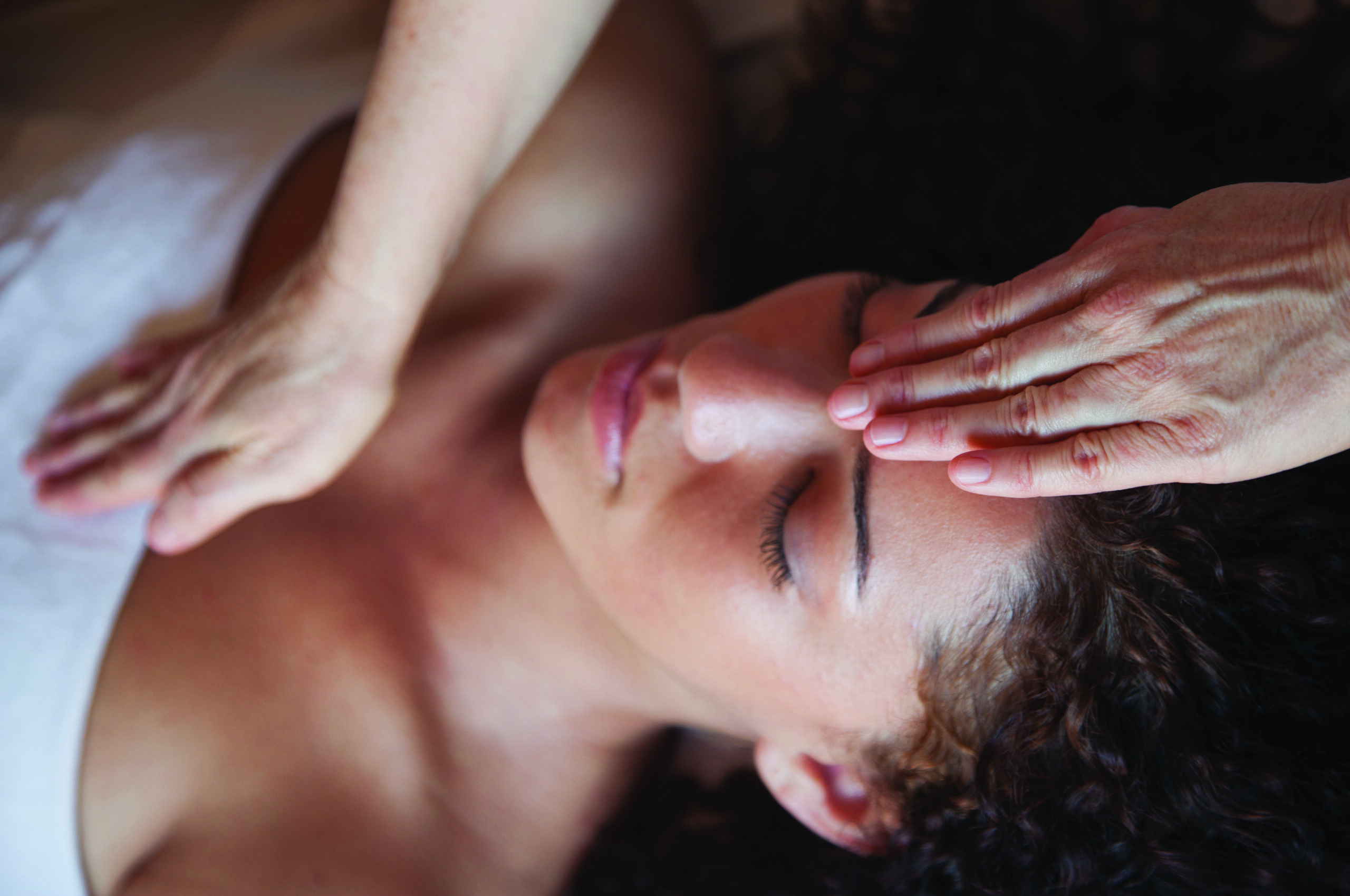When Kathleen Gurbin’s husband, Brent, was dying of lung cancer 20 years ago at the age of 57, she was desperate to do anything to help ease his pain. That included trying reiki. The traditional Japanese technique purports to bring healing through light touch or by hovering one’s hands above a person’s body to manipulate the flow of what practitioners believe is a powerful universal energy.
Her late husband was doubtful, but he went along with it. “He found peace and relaxation, and it helped the pain.” Gurbin even performed reiki on Brent at the moment of his death. “I felt called to him, put my hands on his heart, and within a minute he was dead.”
Today, she and her current husband, Richard, offer a reiki healing ministry two afternoons a month at Bracebridge United in Ontario’s cottage country. She compares reiki’s effects to a mother putting her hands on her children to soothe their pain if they fall down. “It’s the same kind of healing energy,” she says. “When we put our hands on someone, we feel like we are channelling the love of God, and the energy is flowing through us.”
This isn’t the only United church to offer reiki to reduce stress, lessen pain and relieve anxiety. Toronto’s St. James United has been offering reiki from trained volunteers for more than 20 years. It services 500 clients, generating $15,000 a year in donations. The church even created a wellness centre, thanks to an endowment from a parishioner who received reiki over a long illness.
Some people have called Jesus the first reiki master. St. James’ minister, Rev. Coral Prebble, points to the 46 Gospel accounts of Jesus healing people. She quotes Mark 16, which says one of the signs of a true believer is the laying on of hands to help the sick recover. (The other signs are the ability to cast out demons, speak in tongues, pick up serpents and drink deadly poison without getting ill.) “I don’t know if these accounts are reiki inspired, but they are healing inspired, and that’s what we want to reclaim,” says Prebble.
“When we put our hands on someone, we feel like we are channelling the love of God, and the energy is flowing through us.”
Whether reiki really works or not is a matter of debate or perhaps blind faith. Much of the evidence is anecdotal — it’s difficult to scientifically measure invisible energy, after all. And although many small studies have shown some positive effect, the U.S. National Center for Complementary and Integrative Health reports that reiki has not been clearly proven to be useful for health-related purposes.
Critics say any positive result from reiki is merely a placebo effect. Timothy Caulfield, a health-policy expert and professor at the University of Alberta, calls reiki “serious flat-Earth-level wackiness” and criticizes universities and hospitals that allow space for the practice. Yet even he sees its allure. Like 10 percent of Canadians, he has tried it. He says a session he had as part of a research trip to Kyoto, Japan, was “thoroughly enjoyable and relaxing. It was a positive experience.”
Besides, what can it hurt? Cecilia Ronderos of Toronto says reiki allowed her to cope with the side effects of chemotherapy when she had breast cancer at age 60. Now, she offers the service to other cancer patients as a volunteer. “It helped me embrace the process in a calm and positive way,” she says. “I also felt I was doing something to help myself, something that would complement the conventional treatments.”
















I did my training at St. James in Toronto. REIKI ENERGY is real and helpful to use for others and on myself. Some things can’t be measured
The United Church has been doing Healing Pathway for years as well. It is like but different than Reiki.